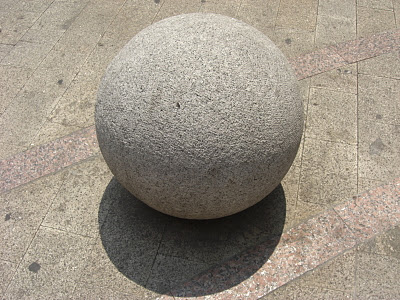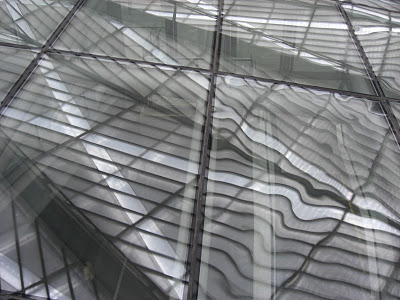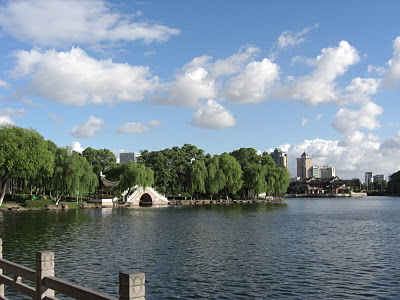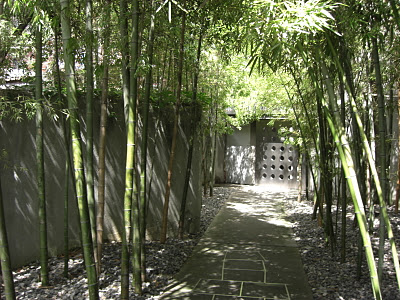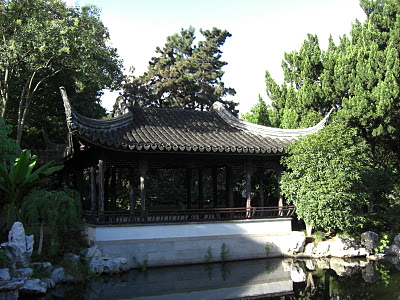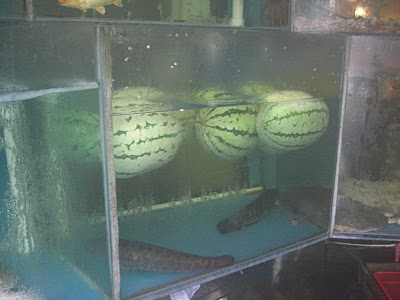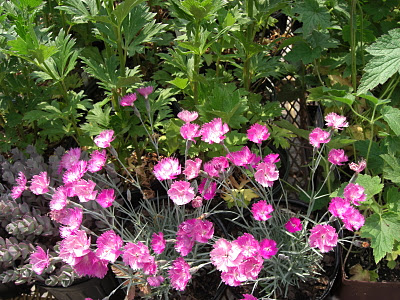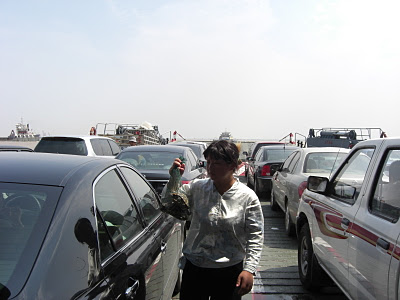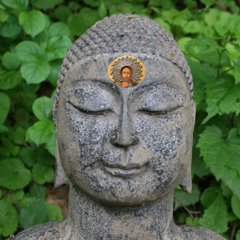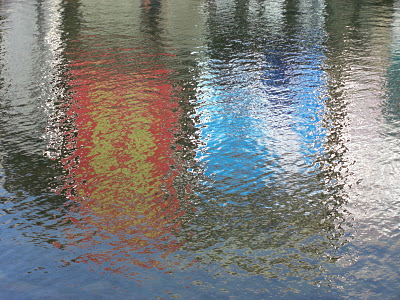
I
spent the early afternoon today shopping for antiques on Shanghai's
Fangbangzhong Lu. One has to dig around, but there are still good things
to be found here. In particular one stumbles across numerous fine
Buddhist artifacts that ought to be rescued from the obscurity thrust
upon them by time, disinterest, and communism. At times it looks to me
like the whole religion is up for sale here.
On the other hand, a
quick perusal of the rafters of ads in Shambala magazine gives much the
same impression. I sometimes ask myself, why does every impulse in man
ultimately turn up as merchandise?
I got back to the hotel
drenched in sweat -- I gave myself the task of lugging heavy stone
Buddhas by foot through the streets to get some exercise -- and had a
fine sandwich in the lobby. Now I sit on the 39th floor of an ultra
modern skyscraper staring across a city that is suddenly drenched in
mist and rain, and intermittently thrashed by spectacular bolts of
lightning.
Even the most contemporary architecture assumes a
primeval aspect when it is surrounded and softened by the medium of
water, and then highlighted with intense jolts of natural electricity. I
could offer you a picture this very instant of the exact impression
before me, but the picture I took yesterday -- reflections of
advertising signs in a pond in the Ningbo -- is so appealing abstract
and colorful that I prefer it.
Let's move on to the subject of the day.
Those
who read my posts regularly are aware that I have been engaged for a
number of years now in the study of inner negativity--what it is, why it
arises, and how we can become less subject to it.
As I continue,
on this trip, to review Gurdjieff's "Beelzebub"--part of an audio
project whose results will be completed and released,
insh'Allah,
in the eventual future--I am still engaged in the final chapter, "from
the author." One of the signature features of the lecture presented in
this chapter is the discussion of the famous traditional yoga analogy of
man's inner organization to a horse, a driver, and a carriage.
Astute
readers of this passage may pick up on the fact that in Gurdjieff's
eyes, the part of the arrangement that has the most serious problems is
the horse -- that is, the emotions. The driver functions at least
marginally, and the carriage may be challenged, but it is at least
functional. The emotions,on the other hand, have been completely abused
and are all but uneducated.
I believe we need to study this
question in much more detail. As I have indicated before, the health
and well-being of the emotional center depends on the interrelationship
between the organs-- the inner flowers--that conduct its vibrations.
Without a healthy emotional center, the motive force of our inner work
is crippled.
It's clear that this emotional deficit is a
universal problem: half the nation is on prescription mood enhancers of
one kind or another. When a significant portion of the population needs
drugs to feel emotionally whole, it's clear something is going very
wrong inside people. What's even more surprising, we don't even question
it. In this day and age, it is just about taken for granted that our
emotions are going to be broken.
How many of us, however, sit
down every morning to conduct, through meditation, a thorough study of
our emotional state in order to determine
why it's broken?
All
the chemicals we are using to boost our morale are chemicals we ought
to be producing on our own. One would think we might want to undertake
an effort in this regard, rather than swallowing little colored pills.
As one of my group members said to me a while back, "the chemicals we
make ourselves are
better."
I
remember that many years ago, when I asked how to approach work on the
emotions, my teacher indicated that there was no way to work directly on
the emotions, that this would enter my work "on its own" when it was
necessary.
I don't like to contradict my own teacher, who I
deeply love and respect. I owe her a great deal. Nonetheless, my own
investigations over the past five years have led me to believe that her
take on this is not correct.
The specific work of receiving and connecting the inner energies
is work
on the emotions. This work needs to be conducted in strict accordance
with the enneagram, a detail that seems lost on many of those who are
familiar with the Gurdjieff work.
It's essentially true that just
about every major branch of yoga understands work with energy, and in
this manner one might say they are all equal, and that the Gurdjieff
work is the "same" work. That, however, is a terribly mistaken point of
view. It would only be true if there were no enneagram. The enneagram
provides the objective organizing principle for inner work with energy
that was lost by all the yoga schools.
Does anyone take it
seriously? Our attitude is usually "oh, yeah, the enneagram." And we
move on to other more important questions. Here I am tempted, like Zen
master Dogen, to castigate the "mistaken views of non-Buddhists."
In order to reorganize, to reconnect and, yes,
remember the
proper work of the emotional center, and to learn how to acquire the
food that is needed for it, we must work according to the principles of
the enneagram. This should not be so mysterious. The cult of avoidance
that seems to have arisen within the formal branches of the Gurdjieff
work in regard to this question needs to be overcome. The diagram is
perhaps the most important tool the school has, and yet I do not see
enough serious work being done on it. In the past 25 years I have
consistently discovered that any potentially practical application of
this diagram is almost completely ignored.
Amazing, isn't it?
All
right. Enough of my incessant preaching about this subject. Let's
talk about the nature of emotion and its place in our work.
Based
on my own observations and research, right emotional food changes the
center of gravity in our lives in a dramatic manner. If and when we
acquire it, several emotional features emerge within a man that are
completely buried and deeply dysfunctional under ordinary circumstances.
The first feature is
gratitude, and the second one is
compassion.
Right
emotional food will bring a profound and penetrating gratitude for even
the most ordinary circumstances of life. This gratitude is organic,
that is, it arises within the marrow of the bones, lives within the
spine, expands the heart, and comes to dominate the experience of life.
It carries within it the seeds of that experience Mr. Gurdjieff called
"remorse of conscience." Those seeds, by the way, are also the seeds of
Joy.
It is possible to feel gratitude towards a pencil, or a
windblown piece of trash. This emotion of gratitude should appear within
the landscape of life on a daily basis; it is a fundamental aspect of
the Dharma. It is absent simply because the parts that produce it are
starved. Let me be clear: we do not need to
seek gratitude. If we are working in a right way, gratitude will seek
us.Compassion
is a larger question. Compassion arises from the interaction between
the emotional center and the added, and blended, experiences of the
intellectual and moving center. In a sense, this feature belongs to the
fourth personality of man. It should always be present. In fact, as
the Buddhists maintained, and as Christ probably would have insisted, it
is man's most important calling.
And once again: if we work in a right way, we will not need to
try to "practice" compassion. We will
be compassionate. Real compassion is effortless; it arises as a natural consequence of right work.
If
we refer to the chapter "From the Author," page 1087 in the new
edition, we find Mr. Gurdjieff saying: "...the highest aim and sense of
human life is the striving for the welfare of one's neighbor," and...
this is attainable only through the conscious renunciation of one's
own."
If this is not a description of compassion, I will eat my
hat. Mr. Gurdjieff was no fringe figure, no mountebank establisher of
unique and deviant cults; the
central question of his work was the question of compassion--as it must be in every real work.
If
a man develops a real "I", compassion will emerge in the same way that
the sun rises in the morning. Love is the heart of this work we are in.
Those
of you who have taken the time to download my essay on chakras and the
enneagram have been introduced to the understanding that the energy we
must feed ourselves with is Love. Love is not an abstraction or concept,
it is an
actual physical food that we are able to receive and ingest.
If
you don't already know this personally, my friends, you deserve to.
Understanding work in this way will utterly change your life.
Mankind
was created for this purpose. It's sad that, taken as a whole, so
little of humanity has any experience of this. If there truly is a
sorrow at the heart of the universe, it would have to be God's sorrow at
seeing what he has made available for his creation-- which we all so
cavalierly ignore and throw away. Jesus tried to remind us of this in
his sermon on the Mount when he referred to the lilies of the field.
In seeking to heal the emotional center, we seek to find in the food of love, to
receive
it within this vessel, to bring the vibrations that it carries into
right relationship within all of the inner parts, so that at least a
trickle of it can enter our daily life.
I remember a moment from
years ago: one of our more venerable movement teachers reading to us at
the end of a class from a text written by the master of the Mevlevi
dervishes.
I'll have to paraphrase.
"People don't understand why we turn," the master said. "We turn in order to
bring down the light. There can be no more beautiful work."
Amen to that, brothers and sisters.
May your trees bear fruit, and your wells yield water.
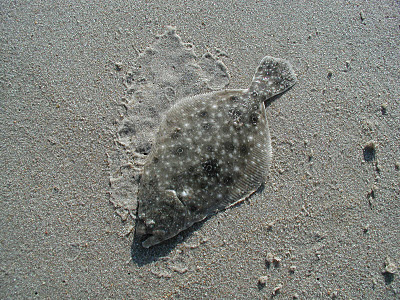 We
just got back from an upstate wedding... many impressions of rolling
hills, glacial valleys, devonian shales, arts and crafts--the wedding
took place at the Rochester Folk Art Guild-- and many celebratory
people.
We
just got back from an upstate wedding... many impressions of rolling
hills, glacial valleys, devonian shales, arts and crafts--the wedding
took place at the Rochester Folk Art Guild-- and many celebratory
people.



